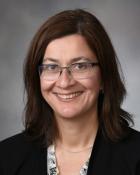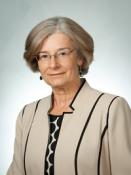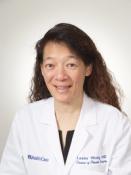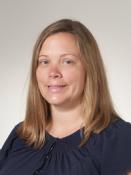Breast cancer is a tumor that forms in the breast. Sometimes you can feel it as a lump or see it on an X-ray, like a mammogram. Many breast lumps are not cancerous and do not spread beyond the breast. However, breast lumps that are benign – or non-cancerous – are a risk factor for developing breast cancer.
Breast cancer at UK Markey Cancer Center
Markey has provided state-of-the-art cancer care for more than 30 years, and we are proud to be the only cancer center in Kentucky designated by the National Cancer Institute. Since 2017, Markey Cancer Center has been nationally recognized as a top 50 cancer center by U.S. News & World Report.
Our services are centralized for your convenience. Mammograms, biopsies, provider appointments and breast cancer treatments are available to patients all in one central location within the UK Markey Cancer Center.
Breast cancer can cause a variety of symptoms, including:
- New lump in your breast or armpit
- Dimple on the outside of your breast
- Change of breast shape
- Nipple discharge, including blood
- Pain
- Red, flaky skin around your nipple
- Thickening or swelling of one part of your breast
According to the American Cancer Society, the survival rate for breast cancer detected before it spreads is 99 percent. When it has spread to nearby areas, the survival rate is 86%, but the rate drops substantially to 28 percent when the cancer spreads to distant areas in the body.
You can lower your risk of cancer by taking steps to build a healthy lifestyle. Here are some ways you can lower your risk for this disease, as well as improve your overall basic health:
- Avoid using tobacco products. Tobacco has been tied to multiple cancers, and it is responsible for 90 percent of lung cancer deaths.
- Stay physically active. Your physical activity is related to risk for colon and breast cancer. Excess weight gained from inactivity increases the risk of multiple cancers.
- Limit alcohol consumption. It is important to be mindful of how much alcohol you drink. Alcohol intake, even in moderate amounts, can increase the risk for colon, breast, esophageal and oropharyngeal cancer.
- Learn about screenings. Your primary care doctor can recommend appropriate cancer screenings based on your age, personal risk and family history.
- Age
- Birth control
- Being tall
- Breast implants
- Dense breast tissue
- Early menstruation
- Ethnicity
- Excess alcohol consumption
- Family history of breast cancer
- Hormone therapy
- Inherited gene mutations, such as BRCA1 or BRCA2
- Lack of physical activity, especially after menopause
- Late menopause
- Not breastfeeding
- Not having children
- Past radiation therapy
- Obesity
- For your first visit, you will be directed to the Comprehensive Breast Cancer Care Center on the second floor of the Whitney-Hendrickson Building.
- You can register at the front desk, where a receptionist will help guide you through your appointment.
- Free parking is available to patients in the Whitney-Hendrickson parking lot.
- Please remember to bring your patient packet with the completed forms. These items will help your doctor learn more about your case and determine the best plan for your care.
- To meet our patient needs, UK HealthCare accepts many forms of insurance.
Clinical trials are research studies aimed at evaluating medical, surgical or behavioral interventions to determine if a new treatment is safe and effective.
At UK Markey Cancer Center, we are advancing cancer care and research to prevent, detect and treat cancer – one patient at a time. As a patient at Markey, you have a team of people looking at your individual case, applying the most recent cancer knowledge to give you the best chance of survival.
Markey has more open clinical trials than any other cancer center in the region, giving you access to some of the most advanced options available. Learn more about ongoing clinical trials for treating breast cancer below.





















